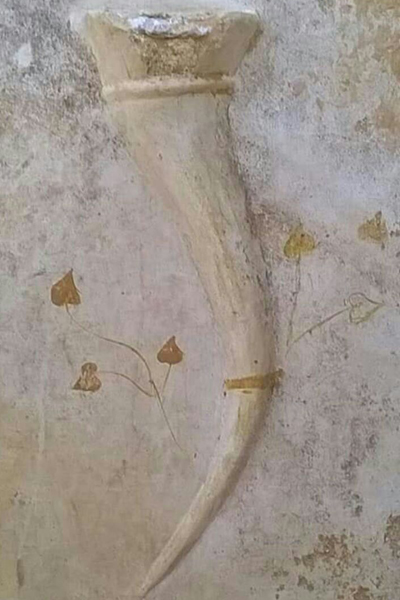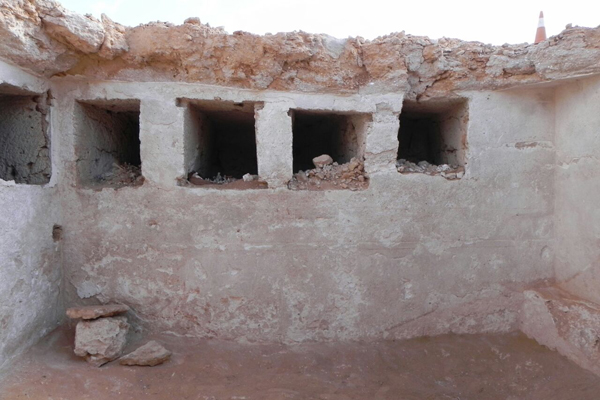An Egyptian archaeological mission working at an archaeological site in Al-Alamein on the northern coast has discovered a rock-hewn tomb that dates to the first and second centuries AD.
The discovery was made during an archaeological survey carried out ahead of infrastructure work in New Alamein City.
Naema Sanad, director-general of the Marina archaeological site and head of the mission, told Ahram Online that the tomb contains of a staircase engraved in rock that leads to the main chamber of the tomb, whose walls hold a number of burial holes called “Locauli.”
Sanad says that the southern wall of the tomb is adorned with a Greek religious and artistic decoration called the “welfare horn,” which depicts a horn with a basin decorated with flowers and tree leaves. To the right of the tomb’s entrance is another chamber that was added during a later period.

The welfare horn
Eman Abdel-Khaleq, senior inspector of the site, pointed out that the mission has discovered many artefacts in the tomb, including a collection of coins dating to the period when the tomb was built in addition to many pottery vessels and two lamps.

the wall with burial holes like catacombs
Short link: